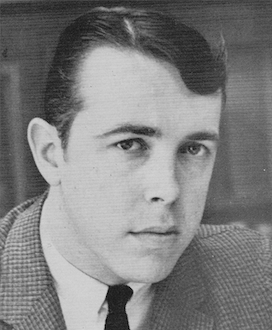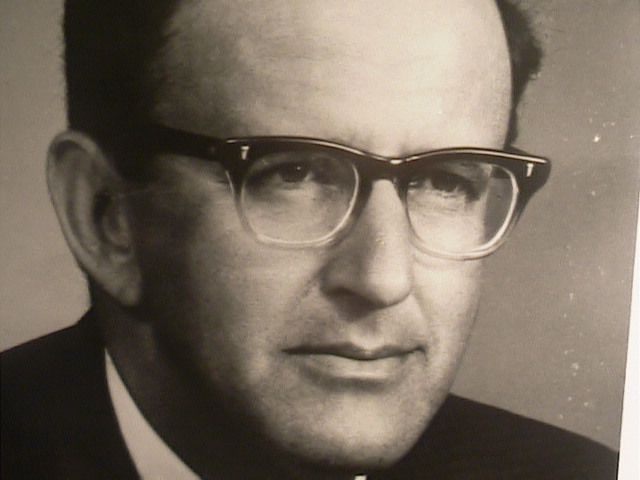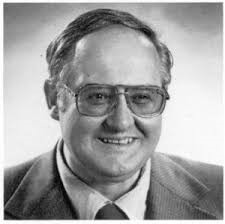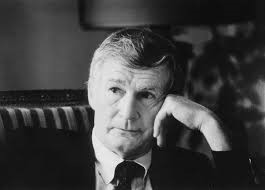Memorial Fellowships
The Philadelphia Society awards memorial fellowships to young leaders who contribute to the advancement of a free and ordered society in memory of past distinguished members.
Memorial fellowship awards include subsidized attendance at a meeting of The Philadelphia Society, including waived meeting registration, and a stipend of $1,000 for lodging and travel expenses. Selected fellows must attend all meeting sessions, including the fellowship orientation, and are expected to stay within the hotel room block. Fellows must complete a short Fellowship Report within 30 days of the meeting.

The M. Stanton Evans Memorial Fellowship recognizes a young scholar, journalist, or conservative movement leader whose work is making a meaningful contribution to the understanding of the intellectual foundations of a free and ordered society and their application to current affairs in American society.
M. Stanton Evans (1934-2015) was a Distinguished Member and past president of The Philadelphia Society and penned the mission statement of The Society. A prolific author, journalist, and educator, Evans became editor of The Indianapolis News at age 26 and would go on to found the National Journalism Center and to hold the Buchanan Chair of Journalism at Troy University in Alabama. In 1960, Evans was a principal author of the Sharon Statement, the founding document of the Young Americans for Freedom and long considered a declaration of principles of modern conservatism. Evans graduated in 1955 magna cum laude from Yale University, Phi Beta Kappa, with a Bachelor of Arts in English, followed by graduate work in Economics at New York University under Ludwig von Mises.

The Harry V. Jaffa Memorial Fellowship recognizes a young scholar who is actively contributing to the advancement of our understanding of political thought and statesmanship.
Harry V. Jaffa (1918-2015) was a Distinguished Member of The Philadelphia Society, a Distinguished Fellow of the Claremont Institute, and the author of numerous articles and books, including his acclaimed study of the Lincoln-Douglas debates, Crisis of the House Divided: An Interpretation of the Lincoln-Douglas Debates (University of Chicago Press, 1959). Jaffa was a formative influence on the American conservative movement, challenging notable conservative thinkers including Russell Kirk, Richard M. Weaver, and Willmoore Kendall on Abraham Lincoln and the founding of the United States. He was a Professor of Government at Claremont McKenna College and the Claremont Graduate School. He received his B.A. (English Literature) from Yale University and his Ph.D. (Political Philosophy) from the New School for Social Research.

The Leonard P. Liggio Memorial Fellowship recognizes a young scholar who is actively contributing to the advancement of our understanding of the history and theory of classical liberal thought, especially in the areas of law, international relations, or the influence of the Christian tradition on economic thought.
Leonard P. Liggio (1933-2014) was a Distinguished Member and past President of The Philadelphia Society and served as research professor of law at George Mason University and executive vice president of academics of the Atlas Network. One of the founding fathers of the post-World War II revival of classical liberal thought, Liggio interacted with many of the intellectual leaders of the libertarian and conservative movements. He sat in on Ludwig von Mises’ graduate seminar at New York University, attended the meetings of Ayn Rand’s “Collective” in her Manhattan apartment, and began a long-running friendship with Murray Rothbard. As an analyst for the William Volker Fund, Liggio began a career of identifying and assisting classical liberal scholars that spanned seven decades. Liggio served as president of the Institute for Humane Studies (1980-89) and of The Mont Pelerin Society (2002-04). He earned his B.S. (history and government) from Georgetown University and the Ph.D. (history of international relations) from Fordham University.

The Forrest McDonald Memorial Fellowship recognizes young scholars holding junior faculty or postdoctoral appointments who are actively contributing to our understanding of American history, constitutionalism, and conservative thought.
Forrest MacDonald (1927-2016) was a Distinguished Member and past President of The Philadelphia Society. A conservative historian, he wrote extensively on the early national period of the United States, republicanism, and the presidency. He taught at Brown University (1959-67), Wayne State University (1967-76), and the University of Alabama (1976-2002). He received his B.A. and Ph.D. degrees from the University of Texas at Austin.
